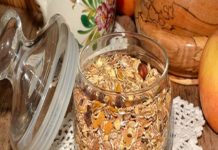There are many health facts which over a period of time have been believed to be myths. One of the reasons is the continuous advancement in medicines. As we continue to progress, more facts keep emerging on a daily basis and some of them may even surprise you!
With so much advice available these days on what to eat (or not eat), it can sometimes be difficult to distinguish whether the advice is based on hard evidence or merely an old wives’ tale. Here are five health myths that we hope to squash, once and for all:
The five-second rule of dropped food
Ever heard of the five-second rule, where it is still safe to eat the fallen morsel if you pick it up within five seconds? In 2007, researchers subjected the five-second rule to rigorous scientific testing. They dropped food on various surfaces that were artificially contaminated with Salmonella typhimurium, a bacterium that causes gastroenteritis in humans. Within five seconds, more than 99 percent of the bacteria were transferred from the surface to the food, putting to rest the myth that food remains safe to eat if picked up immediately.
Frankly, we prefer the zero-second rule when it comes to our food!
Exercise one hour after meals to avoid appendicitis
It is common belief that exercise causes injested food to churn more vigorously in our intestines, and while the appendix is usually difficult to access, it is thought that some of the food particles may get lodged in the appendix, causing a painful condition called acute appendicitis.
However, the definite cause of appendicitis still eludes researchers and medical practitioners till today. Studies have shown that obstruction of the appendix is unlikely to be the primary cause of appendicitis. Instead, appendicitis is more likely to be caused by viral infection, low fiber diets and allergic reactions.
A vegan diet is healthier than one that contains meat
Contrary to popular belief, a pure vegan diet lacks many nutrients that we need for proper metabolic function. Take cholesterol for exampleL our bodies cannot synthesize sufficient cholesterol on their own and animal fat is a good source of it. Plants do not produce cholesterol but a similar molecule, phytosterol that competes with cholesterol for absorption in the intestines.
While bad in copious amounts, cholesterol is crucial to the healthy functioning of many biochemical pathways in the body, such as bile production, vitamin D synthesis and testosterone production.
Of course, there are many benefits to eating your veggies. But if you intend to embark on a vegan journey, you may want to take supplements to meet your nutritional needs.
HAVE YOU READ OUR TOP TEN NUTRITION MYTHS?
Drink eight glasses of water a day
Parents often advise their children to drink eight glasses of water a day. But why eight? The source of this advice might be a 1945 recommendation by the US National Research Council that goes like this: “A suitable allowance of water for adults is 2.5 liters daily in most instances. An ordinary standard for diverse persons is 1 milliliter for each calorie of food. Most of this quantity is contained in prepared foods.”
A 2002 paper published in the American Journal of Physiology notes that most people ignore the last sentence of the recommendation, which states that most of this water can be found in solid food. This erroneous interpretation, coupled by aggressive water advocacy groups sponsored by bottled water makers, probably made this myth stick in households everywhere.
MSG is bad for your health
The popular food flavoring monosodium glutamate (MSG) was first isolated in 1908 from kombu, a type of seaweed, by Dr. Kikunae Ikeda at Tokyo Imperial University. China is now the world’s largest MSG producer, producing almost 75 percent and consuming almost 70 percent of it.
In a 1968 letter to the New England Journal of Medicine, researcher Dr. Robert Ho Man Kwok described “…numbness at the back of the neck, gradually radiating to both arms and the back, general weakness and palpitation” after eating at a Chinese restaurant. The phenomenon, dubbed “Chinese Restaurant Syndrome,” was linked to MSG consumption. However, despite subsequent studies debunking the threat MSG poses to health, its reputation never improved.
Notably, the US Food and Drug Administration has classified MSG as a Generally Recognized as Safe ingredient since 1958, in the same category as pepper and sugar.
Source:
Asian Scientist (April 2014)
-end-




































